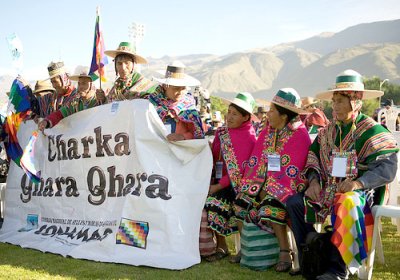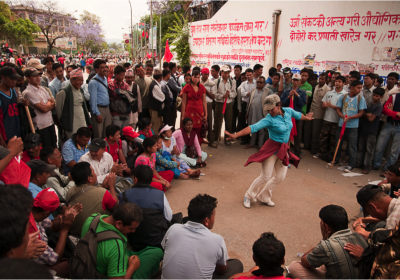The tremendous success of the April 19-22 World Peoples Summit on Climate Change and Mother Earth Rights held in Cochabamba, Bolivia, has confirmed the well-deserved role of its initiator — Bolivian President Evo Morales — as one of the world’s leading environmental advocates.
Since being elected the country’s first indigenous president in 2005, Morales has continuously denounced the threat posed by the climate crisis and environmental destruction.
Morales has pointed the figure at the real cause of the problem: the consumerist and profit-driven capitalist system.
837
“There are two ways forward: Either save capitalism, or save Mother Earth”, Bolivian President Evo Morales said, stressing that this was the choice facing governments at a May 7 press conference in New York. There, he discussed the outcomes of the 35,000-strong World People’s Summit on Climate Change and the Rights of Mother Earth with United Nations Secretary-General Ban Ki-moon.
The campaign against league tables continued on May 11 with a protest organised by the Inner City Teachers Association (ICTA) of the NSW Teachers Federation.
Fifty people rallied outside the office of NSW education minister Verity Firth. After the Australian Education Union federal executive’s last-minute decision to lift the ban on the National Assessment Program — Literacy and Numeracy tests, the action showed the campaign against league tables, and the damage they do to school communities, will continue.
An angry Prime Minister Kevin Rudd told the May 12 7:30 Report that he was “passionate about acting on climate change”. Yes, we know. But if only he’d stop acting and start doing.
The demise of the Rudd Labor government’s proposed Carbon Pollution Reduction Scheme (CPRS) is not the problem. It’s a good thing. The problem is that the government still has no serious climate change policy.
Jed Brandt, a member of US Kasama Project, is in Katmandu reporting on the ongoing struggle between Nepal’s poor majority, led by the Unified Communist Party of Nepal-Maoists (UCPN-M), and the US and Indian-backed elite that removed the UCPN-M-led government last year.
- Previous page
- Page 5



